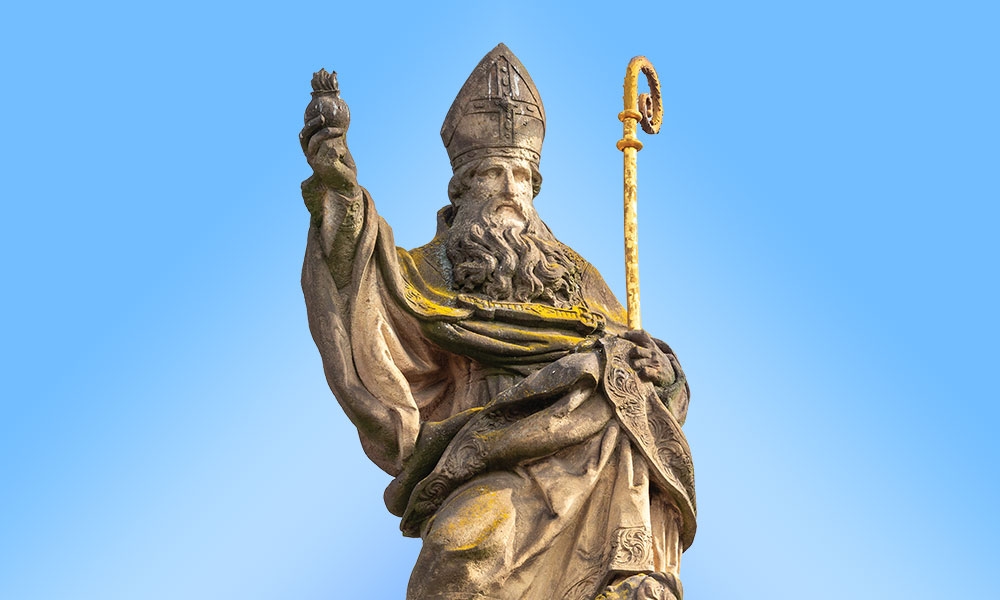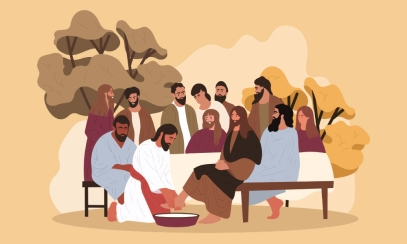
The Transformative Power of Prayer
As we conclude our exploration of prayer, let us remember that prayer is the turning of the body, mind and spirit to God in an intimate way. It is an act of communing with God; it is a process of orienting ourselves toward God in a way that both reverences God’s power and goodness and habituates us to look to God for everything. In this way, prayer conforms us to God and transforms our lives.
As we conclude our exploration of prayer, let us remember that prayer is the turning of the body, mind and spirit to God in an intimate way. It is an act of communing with God; it is a process of orienting ourselves toward God in a way that both reverences God’s power and goodness and habituates us to look to God for everything. In this way, prayer conforms us to God and transforms our lives.
From stone to flesh
The heart, as the Catechism tells us, is the place “to which [we] withdraw.” (2563) It is our hidden center, a center that is beyond the grasp of our reason and beyond the grasp of all others. Only the Spirit of God can fathom the human heart and know it fully.
Our hearts grow hard due to sinfulness. But prayer, as an encounter between our hearts and God, gives us the opportunity to “turn back” to God and re-enter into a state of communion with our source and our destiny. In prayer, our hearts are transformed from stone into flesh. This is part of the ongoing fulfillment of God’s promise to the prophet Ezekiel: “I will remove the heart of stone from your flesh and give you a heart of flesh.” (36:26)
From entitlement to thanksgiving
Prayer transforms a sense of earning anything into a sense of gratitude for everything. This is because thanksgiving for the blessings and challenges of life is an essential element of Christian prayer.
Thanksgiving acknowledges that all good things, especially life itself, come from our Creator as a gift, and, thereby, gratitude habituates us to the right ordering of our lives. We earn nothing, but we lack nothing – such is the graciousness of our God.
From apathy to faith and boldness
Father Lawrence Hennessey, Professor Emeritus at the University of Saint Mary of the Lake, was fond of saying, “Your faith won’t grow if you don’t want to know.” Prayer is a critical piece of this “wanting to know” because, by its very nature, prayer draws us ever deeper into knowledge of the Triune God through the workings of the Holy Spirit. It strengthens our faith as we learn more and more that “God is.”
As our faith increases, so does our boldness because we increasingly believe in the goodness of God who hears and answers our prayers. “Ask and it will be given to you; seek and you will find; knock and the door will be opened to you.” (Mt 7:7)
From needs to love
We most often pray when we need something. However, the more we pray, the more our prayer will be transformed into praise. The Catechism states, “Praise is the form of prayer which recognizes most immediately that God is God.” (2639) It asks nothing, seeks nothing and expects nothing. Praise simply rests in the knowledge and the joy of God as God.
Praise is a fruit of prayer because it results when one communes deeply with the God who is Love. By sharing in this relationship of love between the Father, Son and Holy Spirit, the one who prays acts as the instrument of God’s praise. Praise is the fruit of the overflowing, abundant love that will radiate God’s light to the world through the one who prays.
Rest for the soul
Love that overflows into the prayer of praise is an expression of God’s intention for every human soul. “You have made us for yourself, O Lord,” St. Augustine famously wrote, “and our hearts are restless until they rest in you.” We are created for eternal communion with God; thus we will find true peace and repose only in him. When we become souls of prayer, we discover a refuge for our restless hearts and a foretaste of that peace for which he destined us from all eternity.
WHO SAID THIS…?
“Whether we realize it or not, prayer is the encounter of God’s thirst with ours. God thirsts that we may thirst for him.”
a. St. John Vianney
b. St. Augustine
c. Julian of Norwich
“Prayer enlarges the heart until it is capable of containing God’s gift of himself.”
a. St. Teresa of Calcutta
b. St. Thomas Aquinas
c. St. John Damascene
“Prayer is being on terms of friendship with God, frequently conversing in secret with him who, we know, loves us.”
a. St. Teresa of Àvila
b. St. Bernadette Soubirous
c. St. Margaret Mary Alacoque
Answers:
1. St. Augustine
2. St. Teresa of Calcutta
3. St. Teresa of Àvila
Doug Culp is the chancellor for the Catholic Diocese of Lexington.



